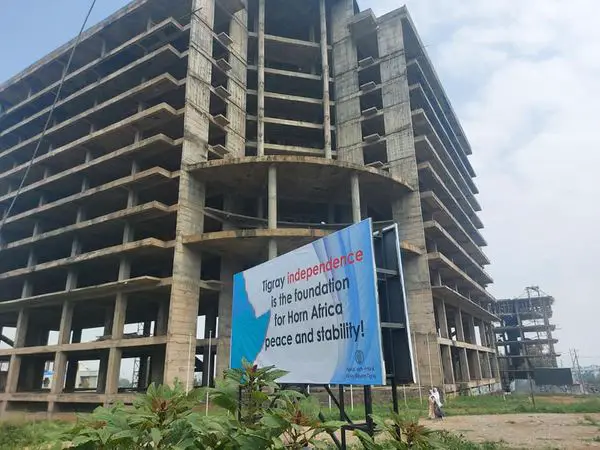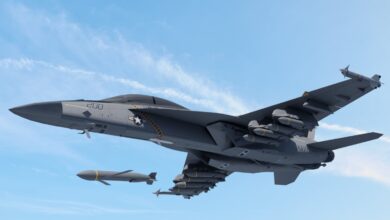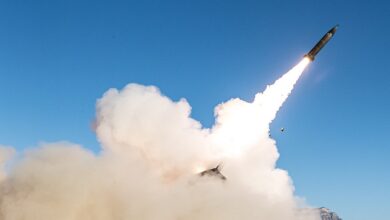
An eerie parallel can be drawn between the American Civil War of the 19th century and the present-day predicament Ethiopia is facing. At its core, both are a fight between two dominant powers, one of union and another of secession.
On the one side, there is Prime Minister Abiy Ahmed who came to power through elections, at the political level in 2018 and through nationwide votes in 2021. Both his political party (the Prosperity Party) and its philosophy of Medemer (Synergy) stress unity through diversity.
Many in this government believe this uniquely diverse nation of more than 80 ethnicities can only remain united by avoiding the pitfalls of the previous administration, where ethnic identity was made to be the sole force for political mobilization.
In 1860, US President Abraham Lincoln asserted that “secession would destroy the world’s only existing democracy.” PM Abiy has repeatedly expressed a similar sentiment, especially after the 2021 national elections, as it was a first in terms of both voter turnout and the neutrality of the election board.
Ethiopia’s Conflict and US Civil War
The contenders in this conflict are the Tigray People’s Liberation Front (TPLF), an ethnic-based party that led Ethiopia with an iron fist for three decades ending in 2018. Of late, especially since the outbreak of the armed conflict in November 2020, this group has publicly asserted its secessionist ambitions.
The TPLF and its elite repeatedly divulge they want to see a post-conflict independent Tigray that can no longer be threatened by the existence of a united Ethiopia. In a recent BBC interview, Federal Attorney-General Gedion Timothewos summarized the situation as “TPLF’s objectives are either reasserting hegemony or dismembering Ethiopia.”

In the American Civil War, states did not just up and decide to go to a bloody war. The build-up to the war took years as the elites needed to mobilize and indoctrinate the masses for popular support.
Likewise, the conflict between Ethiopia’s Federal Government and the TPLF predated the infamous November 3, 2020 “preemptive” attack. To those who follow Ethiopian affairs closely, the three years after the 2018 transfer of power are very much part of the story of the current war.
TPLF in Tigray
The TPLF has dominated the economic, political, and security spheres since the 1991 coup that put them there. In the security sector, a 2017 public report revealed that out of 49 ranking military generals in the Ethiopian National Defense Forces, 34 (around 70 percent) were TPLF appointed ethnic Tigrayans. This figure is down from 93 percent in 2009 under PM Meles Zenawi. TPLF ethnic loyalists held the same majority in other critical defense departments, in the middle and lower echelons of the defense forces.
In the economic sphere, the budget allotted to the Tigray region was more than 70 percent higher per capita than that of the largest region in the country, Oromia. Nonetheless, the poor people of Tigray never saw the benefits of this grand budget, rather it goes to businesses owned by the TPLF oligarchs. Moreover, major businesses from mining to construction were dominated by TPLF allied ethnic businesses.
This three-decades-old status-quo, however, did not remain intact with the reformist new government in place. Abiy diverged from his predecessors by confronting this hegemony head-on, bringing in reforms in the security, political, and economic spheres.
The TPLF repeatedly claimed being left out of power and decision-making during Abiy’s famous “reform-blitz” where opposition parties, such as Ginbot-7 and OLF that were engaged in armed conflict with pre-Abiy governments, were invited as part of the political reform.
This not only ruffled a few feathers on the TPLF establishment but led to their mass boycott of federal positions in favor of moving the party’s power base to Mekelle, the regional capital of Tigray. One of the first to move to Mekelle was Debretsion Gebremichael, who quit his position as Minister of ICT to become the de-facto president of the Tigray region two months before Abiy’s government formally assumed power.
Operations From Mekelle
From its base in Mekelle, the TPLF regional government promised its constituents it would focus on the development of the Tigray region. Meanwhile, the new Prime Minister Abiy made many overtures including a 2018 visit to the regional capital to appease the touchy TPLF establishment who felt a loss of power.
At the same time, Abiy was making inroads with neighboring Eritrea, which the Tigrayan leaders regarded suspiciously. Despite TPLF’s defiant rejection of the inked Ethio-Eritrean peace process, the roadmap to peace was put in place, including opening roads and returning to internationally recognized boundaries.

Nonetheless, during this time of relative peace, grassroots movements in Tigray were busy sowing seeds of discord with the blessing of the leadership. These movements painted Abiy’s government as populist, pointing to the unprecedented public support ushered by his radical reforms.
The Tigray public was being indoctrinated into believing that Abiy’s government is akin to the much-hated old Derg (military junta that ruled Ethiopia and Eritrea from 1974 to 1987), in that he wanted to centralize power.
The depiction of Abiy’s new government as a “unionist” or “assimilationist” also gained traction when picked up by some analysts in the West. But the facts on the ground contradicted it; regions that were not granted autonomy under EPRDF, such as Sidama, managed to hold their first referendum.
Regions relegated to the peripheries of power such as Gambella, Benishangul, and Somali were given more political leverage in joining the leading coalition. Despite this, pervasive anti-Abiy propaganda continued in TPLF circles and more importantly to the Tigray general public exposed to their media.
Tigrayan ‘Exceptionalism’
Another interesting parallel is the cultural aspect, exceptionalism, and pride were what the American confederates felt led them to revolt. They built an explicit white-supremacist, pro-slavery, and antidemocratic nation-state, dedicated to the principle that all men are not created equal.
Confederate states used the notion of the God-fearing, honest “Southern Pride” to set them aside from their enemies. In Ethiopia, the TPLF, its supporters, and other Tigrayan right-wing groups always express this culture of “Tigrayan superiority” known by some as the “Agazzian movement.”
Much like the US Confederates, the TPLF crafted a convincing narrative for its constituents and youth. The narrative claims that “we are the founders of civilization and art, writing system, and religion that Ethiopia uses today” and that “we are the descendants of the famous Axumite Kingdom.” Many urban youth today, fighting the TPLF’s war, believe that not all Ethiopians are created equal and vow to bring back “Greater Tigray.”
The Last Straw
In another historical parallel, President Lincoln offered pre-war General Robert E. Lee the command of the federal forces in 1861. Lee immediately declined and tendered his resignation from the army when the state of Virginia seceded, arguing that he could not fight against his own people.
PM Abiy’s incoming administration also did not purge TPLF leaders, in fact, many kept their high-profile and ministerial positions.
In 2019, a foretelling moment of what is to come had passed relatively unnoticed. As a consequence of the Ethio-Eritrean peace deal, the federal government restructured the Ethiopian National Defense Forces and the Central Army Command ordered some divisions of the Northern Command to withdraw from Eritrean border areas.
This command included heavily mechanized divisions with anti-air and medium-range surface-to-surface missiles to leave Tigray. Ostensibly at the protest of local youth and public, the then Tigray regional government interfered in the ability of the federal government to command its armed forces. It is now apparent that it was part of a calculated move to keep those weapons nearby, as the missiles that were launched on the cities of Bahirdar and Gondar as well as neighboring capital Asmara came from these beleaguered divisions.
Then followed the national election saga of 2020, when globally hundreds of elections were postponed due to fear of COVID and the Ethiopian National Election Board also decided to postpone. The Tigray regional government protested this and adamantly declared it will hold elections with or without the rest of the country.

It then handpicked members to form an unconstitutional regional election board and held elections in September 2020. And the results came, the TPLF won 98 percent of all parliamentary votes and started to publicly describe the federal government as “unelected” and “illegitimate.” This was the litmus red that indicated relations with the federal government were heading to the abyss.
Consequently, the TPLF announced that the Northern Command of the Federal Army should no longer answer to the “illegitimate” federal government. This declaration was promptly followed by action, Tigray regional government defiantly rejected the federal government’s new appointees for the Northern Command.
Unfortunately for the nation, this Command was the backbone of the Ethiopian defense forces and it was “home to the Force’s most experienced divisions, most of its mechanized divisions and more than half of the federal army’s fighting men.”
A good number of confederate army generals were defectors from the US regular army in favor of their home states. In a similar manner, most ethnic Tigrayan members of the military outright defected from the Federal army on the days leading up to November 3, 2020.
And finally on the fateful night of November 3, when the rest of the world was transfixed on contentious US elections, the TPLF launched a multi-pronged offensive on military bases across Tigray and strategic border towns of the Amhara region.
Negotiate or Surrender?
Another one in a series of blunders by some in the international community is the forceful attempt to bring the federal government and the TPLF to “Dialog.” This despite three years of unsuccessful efforts at peace-making. Imagine launching an initiative to bring President Lincoln and General Lee to one table on the premise of holding a dialog and achieve a “negotiated settlement.”
Just as it was for many unionist Americans, negotiating under these conditions is considered a national suicide for most Ethiopians. The TPLF considers the current Ethiopian political order an existential threat. Having endured 27 years of tyranny under the TPLF, the Ethiopian people are united than ever in seeing the TPLF as an existential threat.
US Special Envoy for the Horn of Africa, Jeffrey Feltman, noted on a recent trip that the US government “perfectly understands the views the people of Ethiopia harbor for TPLF.”
Nonetheless, all this is not to say, peaceful avenues have not been looked into. Since the start of public hostilities in late 2018, emissaries composed of religious and civil leaders, famous individuals have made a visit to Mekelle including the likes of athletics star Haile Gebreselassie. Those efforts have not borne fruit, however, as they have been unequivocally turned down.
TPLF leader Debretsion Gebremichael has indicated he would rather die than surrender but still remains defiant in the face of increasing humanitarian costs. His militia is now attacking Afar and Wollo, rendering the last remaining humanitarian corridor unusable. Thousands in Tigray and the bordering areas of Amhara and Afar are displaced and at acute risk of malnutrition in an already impoverished corner of Ethiopia.
When General Lee knew it was time to surrender, he said that there was “nothing left for me to do but go and see General Grant and I would rather die a thousand deaths” before negotiating the terms of surrender. The TPLF leaders should put their ambitions aside as it should not cost the lives and livelihoods of millions in the region.
Abraham Lincoln asserted that secession would destroy the world’s only existing democracy, and prove for all time, to future Americans and to the world, that a government of the people cannot survive. The same holds true for Abiy Ahmed and his government. His Medemer philosophy is simply put “united we stand, divided we fall.” Thus it seems the only way out for the TPLF’s Tigray is in.
 Yodahe Zemichael works as an advisor at the Office of the Prime Minister, Ethiopia.
Yodahe Zemichael works as an advisor at the Office of the Prime Minister, Ethiopia.
The views and opinions expressed here are those of the author and do not necessarily reflect the editorial position of The Defense Post.
The Defense Post aims to publish a wide range of high-quality opinion and analysis from a diverse array of people – do you want to send us yours? Click here to submit an op-ed.











